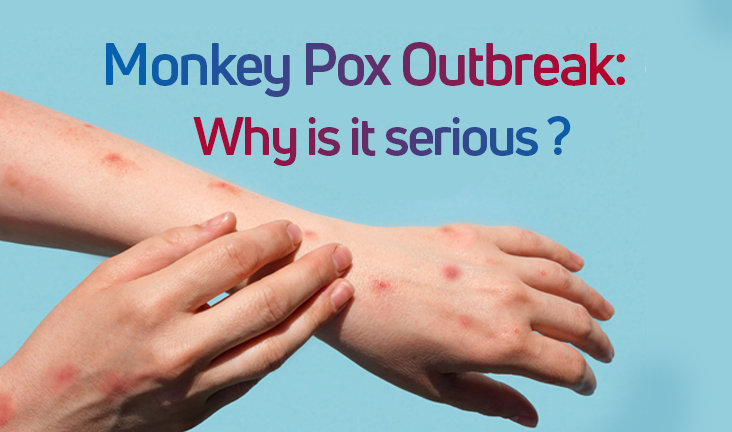Video
Consultation

عربى

Video
Consultation

Book An
Appointment

Accident & Emergency
99616 30000

Help Desk
99616 40000

Robotic
Surgery

Patients Login Portal

Monkey Pox has already kept us on alert and we have to be careful. Here is everything you need to know about Monkey Pox.
With the COVID-19 pandemic still on-going, a second public health threat has put the world on high alert; this includes the state of Kerala as well. The reason why it is termed Monkey Pox is because it affects non-primates i.e., monkeys and spreads to rodents and ultimately to humans. Undoubtedly, the spread takes place when a human comes in close contact with another human or even an animal with Monkey Pox. It could also spread through international travel and even from imported animals.
Monkey Pox sprang up just as every other viral outbreak – through consumption of products made of infected animals. We may consider Monkey Pox to be a newly evolved illness; though its origin dates back 52 years ago. The continued consumption of improperly prepared meat, animal bites or scratches, direct contact with body fluids of humans or animals with Monkey Pox continue the spread of the disease.
Now how does one know that he/she is infected with Monkey Pox? Symptoms begin from day 5 and may go on for 21 days. During this incubation period, one may experience: fever, headache, chills, skin rashes, which ultimately lead to blisters involving pus. This illness can last upto 4 weeks until the last blister or rash fades away.
The best precautionary measure to take is to isolate oneself. The customary COVID protocols such as periodic sanitizing, changing bed-spreads, eating nutritious meals, avoiding contact with relatives and pets, etc., will not only help cure faster but also stop the spread. A complete sanitization of the isolated room after recovery is a recommended practice.
Apart from the precautionary measures, treatment includes drinking enough warm liquids along with pain relievers which are prescribed by doctors according to the intensity of the disease. Side-effects reported for Monkey Pox are minimal, although they may range from severe scars to blindness. The type of Monkey Pox virus spreading in the 2022 outbreak, called the West African type, rarely leads to death.
If proper management is given, the symptoms of Monkey Pox will subside without complications except for the rashes/marks on the body which may take a longer time to fade away.